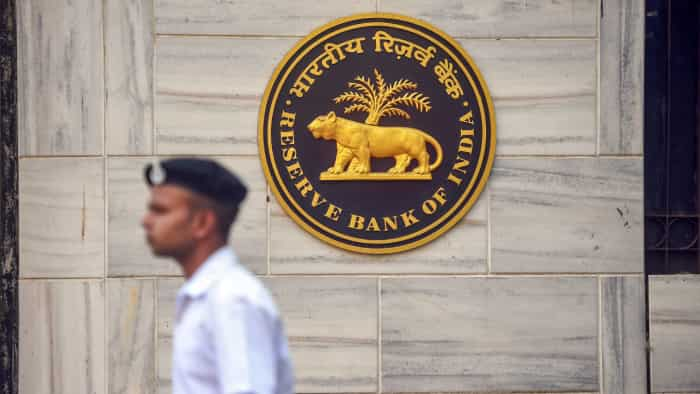HRA calculation: How to avail benefit of house rent allowance exemption
HRA calculation: There are certain conditions that should be met if a taxpayer wants to avail the benefits of HRA exemption. Let’s understand in depth who can avail the benefits of HRA exemption and how to calculate it.

HRA calculation: While filing income tax, it is necessary to know certain exemptions and deductions that can help reduce tax liability. One such exemption provided by the government to salaried employees is House Rent Allowance, or HRA, which can be claimed against the rent paid in a financial year by employees who live on rent.
There are certain conditions that should be met if a taxpayer wants to avail the benefits of HRA exemption. Let’s understand in depth who can avail the benefits of HRA exemption and how to calculate it.
What is HRA exemption?
House Rent Allowance (HRA) is a stipend granted by an employer to an employee as reimbursement for rent incurred by the employee. It is paid as part of the employee's salary by the employer.
Who is eligible for HRA exemption?
-As per the Income Tax Act, salaried individuals are eligible for HRA exemptions under Section 10 (13A) per rule number 2A of the Income Tax Act.
-Self-employed individuals can also claim deductions and HRA tax exemptions for House Rent Allowance. They are eligible for benefits under Section 80 GG.
-HRA exemption can only be claimed under the old tax regime and by employees who live on rent.
How to calculate HRA?
House Rent Allowance received with the salary will not be exempted fully. The least of the following three will be exempted from tax:
-HRA received from the employer
-Actual rent paid minus 10 percent of salary
-50 per cent of the basic salary for those living in metro cities
-40 per cent of the basic salary for those living in non-metro cities
The remainder of the taxpayer’s HRA is added back to their taxable salary.
To put things into perspective, if the actual rent paid to a salaried person is Rs 1,00,000 and the HRA received is Rs 2 lakh while the annual basic salary is Rs 4 lakh, then
| Particulars | Amount |
| Basic salary | Rs 4,00,000 |
| HRA received | Rs. 2,00,000 |
| 50% of Basic Salary | Rs. 2,00,000 |
| Excess of Rent paid over 10% of salary | Rs. 60,000 |
| Amount of Exempted HRA | Rs. 60,000 |
| HRA chargeable to tax | Rs. 1,40,000 |
If the person lives in a city other than one of the four major metropolitan areas, then:
| Particulars | Amount |
| Basic salary | Rs 4,00,000 |
| HRA received | Rs. 2,00,000 |
| 40% of Basic Salary | Rs. 1,60,000 |
| Excess of Rent paid over 10% of salary | Rs. 60,000 |
| Amount of Exempted HRA | Rs. 60,000 |
| HRA chargeable to tax | Rs. 1,40,000 |
Catch the latest stock market updates here. For more news on sports, politics follow Zee Business
Get Latest Business News, Stock Market Updates and Videos; Check your tax outgo through Income Tax Calculator and save money through our Personal Finance coverage. Check Business Breaking News Live on Zee Business Twitter and Facebook. Subscribe on YouTube.
RECOMMENDED STORIES

Katra-Srinagar Vande Bharat Train: Northern Railway announces train timings; check fare, route and other key details

RBI Rule: New system for online money transfers to be implemented from April 1, 2025; here's all you need to know

Power of Rs 15,000 SIP: How long it will take to achieve Rs 7 crore corpus? See calculations to know
05:39 PM IST









 Income Tax Season: Can you save income tax by paying rent to your spouse? Know how to save up to Rs 1,80,000 tax through it
Income Tax Season: Can you save income tax by paying rent to your spouse? Know how to save up to Rs 1,80,000 tax through it Income Tax Season: Not just 80C, this Income Tax section can give you instant tax exemption- know how to take its advantage while filing ITR
Income Tax Season: Not just 80C, this Income Tax section can give you instant tax exemption- know how to take its advantage while filing ITR  HRA Tax Calculator: How much tax relaxation you get on HRA on Rs 4 lakh basic salary
HRA Tax Calculator: How much tax relaxation you get on HRA on Rs 4 lakh basic salary HRA Fraud Alert: I-T Department catches taxpayers misusing PAN cards to claim HRA
HRA Fraud Alert: I-T Department catches taxpayers misusing PAN cards to claim HRA Submitting fake rent receipts? Beware! Here's how income tax department can catch you
Submitting fake rent receipts? Beware! Here's how income tax department can catch you